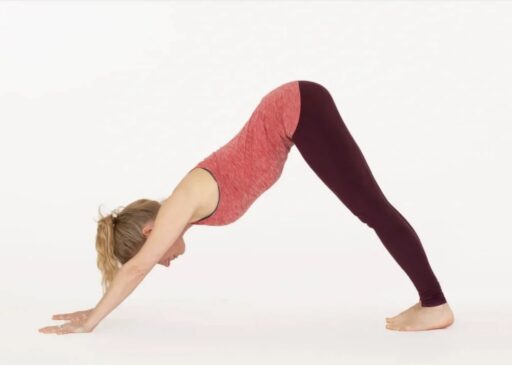We are all going to die, she said. In that, we are equal.
My mother died in December, 2023, a few weeks after my seventieth birthday. Three years ago, a few weeks after I retired, my father died. So, it’s not surprising that I’ve been thinking about mortality, my mortality. That’s why I went to hear Wilka Roig, transpersonal psychologist, death doula, and founder and president of the Elisabeth Kübler-Ross Foundation branch in Central México. Roig was one of the panelists at a session called “Preparing for a Graceful Exit: What Death can Teach Us about Living,” part of the third Asheville Ideas Fest.
We are equal in our mortality: mother, father, me, you, bosses, employees, friends, strangers, enemies. Enemies: I have a hard time believing that anyone is an enemy. A competitor, yes. Wealthier than I am, yes. More talented than I am, yes. More accomplished than I am, yes. Smarter than I am, yes. Jealousy, envy, self-doubt: that’s what I feel when I see others this way. I’ll show them, I think, how ______, and ______, and ________ they actually are. Self-defensive fantasies. I never act on them. But actual enemies, mortal threats? Almost never. Sometimes, however, events transpire that should wake me up to the truth that they exist.
*
“For years I’ve called her a friend,” writes Jehanne Dubrow in her poem “Sun Salutations with Betrayal and Departure.” After finishing a yoga class, she and the woman she has regarded as a friend “lean damp against the mirror”.
“If there were a Sanskrit name for what I am
to her, it would be following flower,
the loyalty of a blossom that opens
beside its colleague on the branch.”
Colleagues: academics, as Dubrow’s Wild Kingdom, the book in which this poem appears, makes clear.
“We talk of our work. And I sense, the way
spines know the limits of their curvature,
that she has lied to me.
. . .
Months from now, my friend will explain
the truth is a limb that can bend,
words too a flexibility, contortion
learned through daily practice.”
I am naive. I am foolish. Other than when politicians speak, I don’t sense it when I’m being lied to.
*
Truth: how the poem begins.
“Although the room is full of moving,
sweating people—all of us lunging forward,
or folding ourselves in tangled shapes,
obedient to Sanskrit names we’re told
mean mountain, plank, dog—
downward facing, I feel a sudden anger.”
The doors of the yoga studio are closed. Each practitioner is safe on her island, her mat. But even that can’t keep unsettling emotions and thoughts from entering.
*
To prepare for the second annual Yetzirah: A Hearth for Jewish Poetry conference, I’ve been reading or rereading poems by some of our faculty, participants, and sister board members. Jehanne Dubrow, who I’m fortunate now to call a friend, serves as Yetzirah’s Vice President and curates our reading series. This morning, her poems, including “Sun Salutations…,” brought me more fully, more deeply into life itself. “What Poetry Can Teach Us About Living” could be the title of my early morning session with Dubrow’s work and a cup of Tazo’s Awake tea.
“What else should I say?—soon others
will try to break me like a small bone in the foot.
Soon she will not place a hand
on the hunched sadness of my shoulder.
I will be left to learn the correct pose
of warrior for myself, heels aligned,
belly tightened as if waiting for a punch.”
Maybe I’ve been lucky. I have been lucky. No one at my university, where I taught and directed several programs for thirty-two years, tried to break me. I was not broken. I was uplifted. And the warrior pose? One of my least favorite asanas. I don’t know why. Give me shavasana, corpse pose. Maybe I’ve been preparing for death since I first learned yoga in my late teens.
*
Seeing clearly. That’s what we’re told we’ll learn to do by practicing mindfulness. Sociology, economics, history, education: these and other forms of scholarly analyses help us see ways in which inequality is built into the structure of our lives. Thanatology can help us see a fundamental, inescapable way in which we are equal: we will die. No exceptions. Would anything change in the way we regard and treat each other if we were to pause and remember, as we faced or faced off against each other—friend, traitor, enemy—that we are mortal?
Dubrow’s poem continues:
“If there were a Sanskrit name
for what she will do by doing nothing
to help me, it would be passive river.
It would be silent moon of cowardice.
It would be kneeling hyena with averted gaze.
Or, put unbeautifully, she could have warned
that others were trying to hurt me.
And there are injuries no stretching can undo—
we live with the twinge in the back.”
Like a simple teaching—we are equal in our mortality—, a poem can bring me home to another fundamental truth: we hurt each other. Sometimes unintentionally, sometimes intentionally.
The poem continues:
“Months from now, I won’t say goodbye,
my leaving not marked by a mallet
dragged on the edge of a singing bowl,
harmonics emerging from the empty
slope of the vessel. The divine
in me won’t bow to the divine in her.
There will be no pressing together of palms.”
What a good poem does: name what hasn’t been named before, or rename what has been named before but in such a way that we experience it as if for the first time. In this poem, the refusal to make nice. No namaste; no prayerful, heartful bow.
It’s not easy to forgive. Maybe in some cases it seems impossible. Dubrow’s poem doesn’t even hint at that possibility. For me, the poem’s power comes, in part, from its stopping exactly where it does. How life, a human life, ends.
*
If there’s a death in this poem, it’s metaphorical. The death of trust. The loss, if not death, of, say, collegiality. And life? It’s all over this poem, from the first syllable to the last. Language itself is another fundamental truth of human existence. With its mastery of language alone—voice, metaphor, imagination, honesty, clarity, precision–—this poem fills me with a sense of wonder. Wonder: yet another feature of human experience.
*
Like reading a poem, contemplating death can awaken our awareness of the wholeness of life. The bitter and the sweet. The profane. The holy.
Like my mother, like my father, I will die. You will, too. May that day not come anytime soon! Until then, I hope to hold mortality and poetry close. Each brings the wonder—the pleasure and pain—of this life, this one life sharply into focus. By this, I live.
Richard Chess has published four books of poetry, the most recent of which is Love Nailed to the Doorpost. Professor emeritus from UNC Asheville, where he directed the Center for Jewish Studies for 30 years, Chess serves on the boards of Yetzirah: A Hearth for Jewish Poetry and Black Mountain College Museum + Arts Center, where he co-directs its Faith in Arts project. You can find him at www.richardchess.com .





